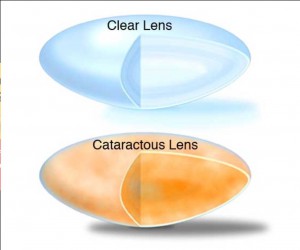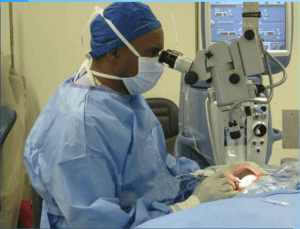
Most people over the age of 50 will develop cataracts at some time in their lives.
The good news is that cataract surgery has undergone tremendous technological advances since the days of your parents and grandparents. Cataract surgery is an outpatient procedure, that takes just minutes to perform, with a quick recovery time.
We are committed to providing our patients with the information they need to make good healthcare decisions. Of course, we will answer your questions one-on-one, but here are the 3 most commonly asked questions about cataracts.
1. How do I know if I have a cataract?
A cataract is easily detected at your regular eye exam. So if you have regular check ups, the doctor will be able detect the cataract early, and advise you when it is time to have it removed.

- Cloudy or blurry vision
- Colors look faded
- Glare or halos when you look at lights
- Poor night vision
- Double vision or multiple images in one eye.
2. What happens during cataract surgery?
You will be lightly sedated. You may hear the operating room staff talking, but you will not feel any discomfort. Your eye is held open with a lid speculum and numbing drops are applied.
Dr. Scott will make a small incision in the front of the eye. A device is then inserted into the capsule that holds the eye’s natural lens. The cloudy lens is then broken up into small pieces, which are removed.

Your eye is then covered with a clear plastic shield and you will be sent home with your driver. You will have a series of prescription eye drops that you will need to use at home. We will see you in the office the next day.
3. Will I need to wear glasses after surgery?
Your lens implant will reduce the need for glasses after surgery. The need for glasses after surgery can depend on which lens you choose:
- A mono-focal IOL will provide you with one point of focus (like regular eyeglasses)
- A Toric IOL provides one point of focus and corrects your astigmatism.
- A multi-focal IOL (ReSTOR) allows for a full range of vision – near, intermediate and distance – greatly reducing your need for glasses.
We will review your lens choice options with you prior to your surgery. Not all lenses are right for all patients. Dr. Scott will help you select the right lens for your visual needs.
Cataract surgery is the most commonly performed surgery today. Many patients remark that after their cataract surgery they have the best vision of their lives with a reduced need for glasses!
Read more on our website Cataract Information




